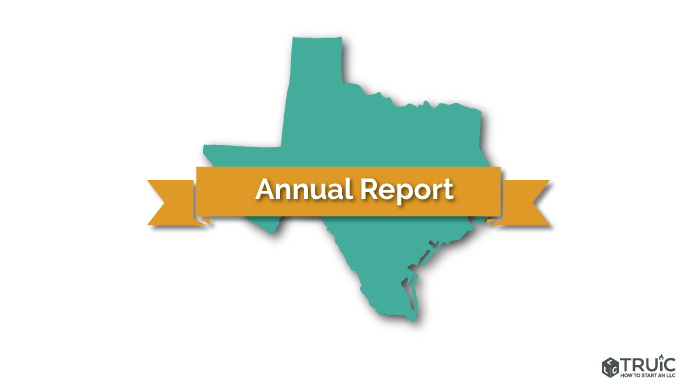Texas LLC Annual Report
What Is an Annual Report?
In Texas, an annual report consists of two filings: an annual public information report and an annual franchise tax report. Your LLC must complete these filings every year to file your franchise tax return and update your business information, including:
- Company address(es)
- Names and addresses of LLC officials (i.e., members, managers, directors, or officers)
The purpose of this report is to keep your business records up to date with the State of Texas. This allows creditors and other interested parties to look up your business address in case they need to contact you. The government uses this information to track the payment of your LLC state taxes.
Ready to form a Texas LLC? Read our llc formation services review to find the best service for you.
How Do I File an Annual Report?
You can file your Texas LLC annual report with the Comptroller of Public Accounts. The type of forms your LLC must file depends on its total annualized revenue and whether it owes franchise tax.
File Your Texas Annual Report
OPTION 1: File Online With Texas Webfile
File Online– OR –
OPTION 2: File by Mail
Download FormsFee: $0 + Franchise Tax (if applicable)
Mailing Address:
Texas Comptroller of Public Accounts
P.O. Box 149348
Austin, TX 78714-9348
Due Date: Texas LLC annual reports are due by May 15 every year.
Late Filings: Any annual report received after May 15 will result in a $50 late fee. Late filing LLCs that owe tax will incur an additional penalty of 5% of taxes due. After 30 days of delinquency, another 5% penalty will be incurred. After 60 days of delinquency, tax-owing LLCs must pay additional interest. Further failure to file an annual report could result in the dissolution of your Texas LLC.
Should I Use a Registered Agent Service?
A registered agent is a person or business nominated by your company to officially receive and send papers on your behalf. By using a registered agent service, you can ensure that your LLC’s reports are always filed on time to the appropriate government agency. Here are the three main advantages to using a registered agent service for your LLC:
- Avoid late filing penalties: The State of Texas can dissolve a Texas LLC if it does not file an annual report. A registered agent service will notify you when reports are due, and they can also submit the filing for you for an additional fee.
- Gain flexibility: A registered agent service can receive and send documents for your LLC during regular business hours so that you don’t have to be on the job from 9 a.m. to 5 p.m. every week. You can also use a registered agent service to form an LLC in other states where you don’t already have an established business presence.
- Maintain privacy: Using a registered agent service allows you to keep your personal address off of public records, ensuring your privacy. Additionally, if someone sues your LLC, the lawsuit will be served to the registered agent’s address rather than your place of business.
Learn more about getting a Texas registered agent by reading our guide.
Recommended: Northwest provides free registered agent service for the first year as part of their LLC packages.
